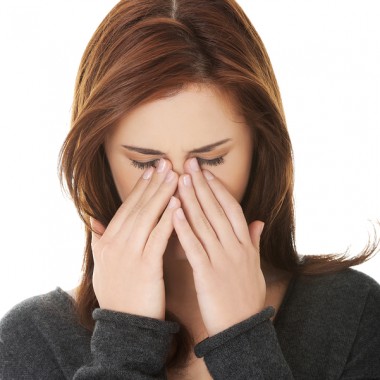For some people, allergy season can mean red, itchy, irritated eyes. The University Eye Center’s chief of Advanced Care, Dr. Joseph Stamm, explains what to do if you suffer from seasonal allergies:
What are some of the eye issues people get when suffering from seasonal allergies?
The classic symptoms of seasonal allergies in the eyes, or Allergic Conjunctivitis, are itching, tearing, a bloodshot appearance and mucus formation in the inner corners of the eye. Many people experiencing eye allergies also notice crustiness of their eyelids upon awakening and blurry vision with a blink during the day. Seasonal allergies tend to come on quickly as trees, grasses, flowers and weeds come into season throughout the spring, summer and fall and can be considered an acute condition or Seasonal Acute Allergic Conjunctivitis. There is another type of allergy that can cause the same eye symptoms known as Perennial Allergic Conjunctivitis. Caused by factors found in our homes and work environments, it is often not recognized as something that can be treated.
What causes these symptoms?
Symptoms of allergies are the result of an environmental agent or allergen, stimulating the release of a biologically active substance known as histamine from the mast cells that line mucus membranes like the inside of the eyelids, the nasal cavities and the sinuses. Histamine triggers the sensitive tissues of the eye, sinuses and nasal cavities to swell, itch and produce mucus.
What sorts of treatment options are available for people who suffer from seasonal allergies?
The usual treatment for allergies is the use of an antihistamine that blocks the inflammatory effects of histamine. Antihistamines are available to be taken by mouth, as nasal sprays, and as eye drops. Steroids can also be used to decrease the inflammation caused by histamine. The types of oral antihistamines or nasal sprays prescribed by your physician might not help your eye symptoms.
For the eyes, the most effective treatment is drops that combine an antihistamine and a mast cell stabilizer which decrease the production and release of histamine. There are antihistamine/mast cell stabilizers available over-the-counter and by prescription from your optometrist. When these drops are not providing adequate relief from the symptoms of Seasonal Acute or Perennial Allergic Conjunctivitis, your doctor may add a topical steroid drop for a short period of time to break the inflammatory cycle. Something as simple as the use of an artificial tear periodically during the day can help rinse allergens from the eye reducing their irritation. No matter which drop or drops your doctor prescribes, it will usually take a few days for you to experience relief from your symptoms as it takes the medication time to quiet the allergic reaction you are experiencing.
Is it ok to wear contacts when you’re suffering from seasonal allergies or will this make the condition worse?
You have to use good common sense while wearing contact lenses during allergy season. The contact lens itself is a minor irritant to the eye – one that is typically tolerated without any problem. When you piggyback a contact lens on top of Allergic Conjunctivitis, the symptoms of allergic irritation are magnified. If you are experiencing an acute allergy attack, it is best not to wear your contact lenses. Once the treatment your optometrist prescribes has the allergy symptoms under control, it may be safe to return to contact lens wear. Remember, the cleaner your contact lens, the less risk there will be for any additional irritation. Single-use disposable soft contact lenses are ideal for allergy suffers as you start each day with a clean, allergen-free lens.
If a single-use disposable lens isn’t an option, reusable contact lens wearers must keep their lenses as clean as possible between lens replacements. Is it important that reusable lenses be cleaned with a rub and rinse technique using the care system recommended by your optometrist. Use of a rewetting drop or recommended artificial tear while the lenses are being worn can also help rinse allergens from the eye during the day.
How can someone tell if their discomfort is due to more than just seasonal allergies?
A sudden onset of itching, tearing, a bloodshot appearance or mucus in the eyes could be a more serious eye infection, not just Allergic Conjunctivitis. It is always recommended that you consult your optometrist if you experience any of these symptoms before you begin to treat yourself. This is especially important if you wear contact lenses. Should any of these symptoms develop, remove your lenses immediately and call your doctor.
 Dr. Joseph Stamm is the chief of Advanced Care at the University Eye Center and associate clinical professor at the SUNY College of Optometry
Dr. Joseph Stamm is the chief of Advanced Care at the University Eye Center and associate clinical professor at the SUNY College of Optometry
